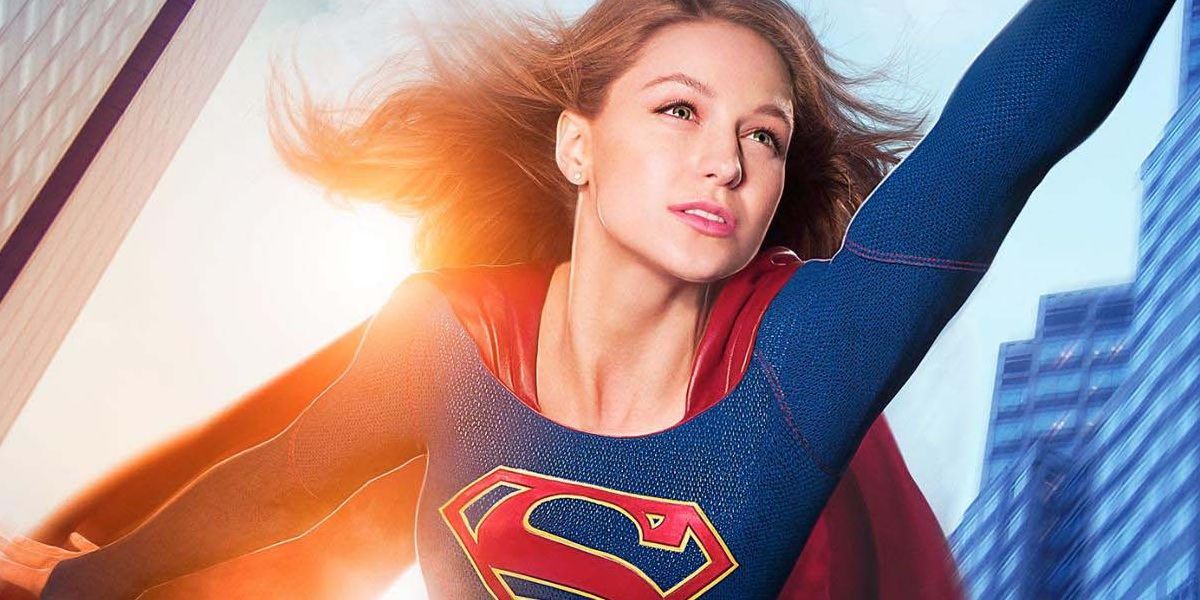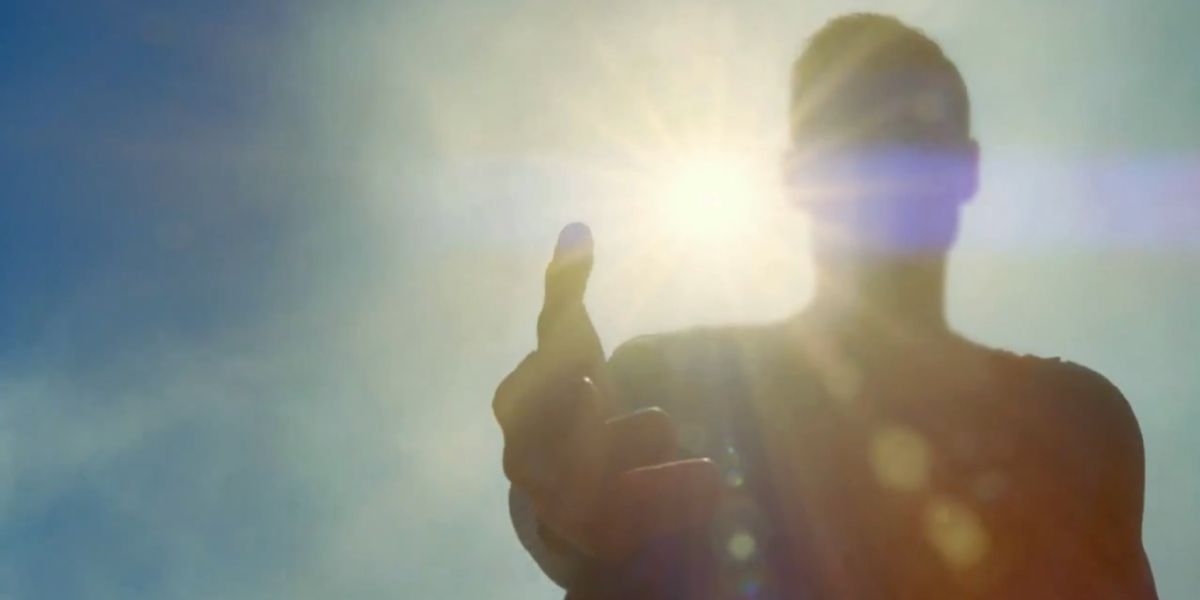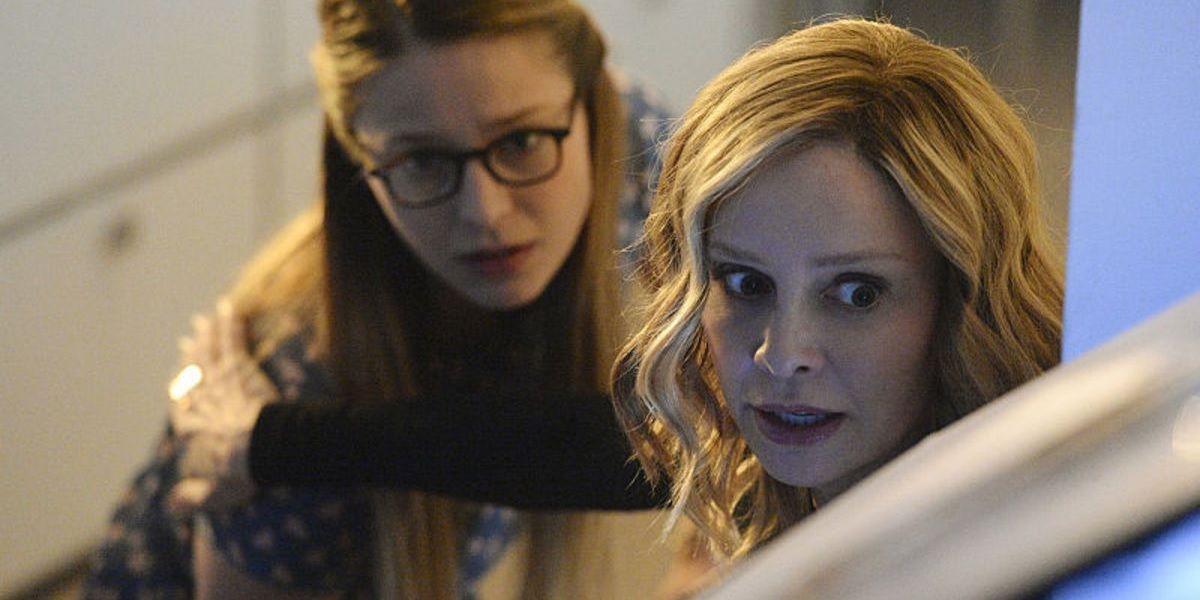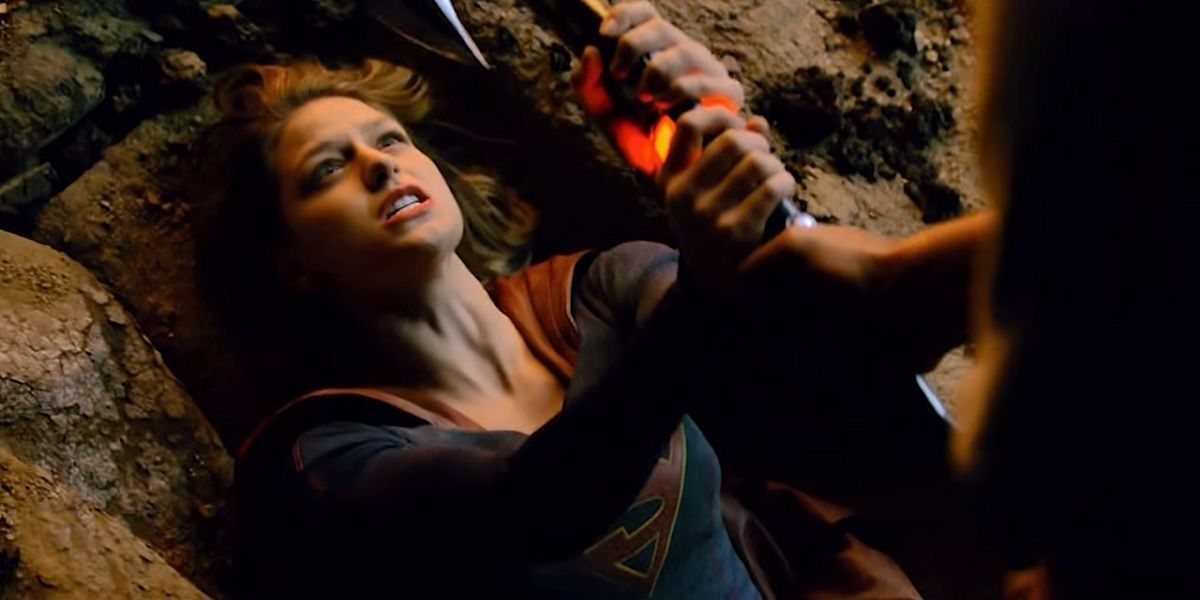Imagine, for a moment, being Kara Danvers. After spending a decade hiding your incredible superpowers and trying to live a normal life, you finally step into the light and heroically save a crashing plane, and with it the lives of your sister and many other passengers. It's a moment of absolute euphoria, and also the moment that you realize you're not satisfied with being a downtrodden assistant any more. You're finally ready to fulfill your destiny and become a superhero.
But before you can start thinking up cool superhero names (or finding your world's version of Cisco Ramone to do it for you), you arrive at work to discover that you've already been given a superhero name: Supergirl. Because the world already has a superhero with your powers, and he's been doing it for much longer than you, and he's better at it than you, and he even managed to avoid being called Superboy. From this point on, your superhero name will act as a constant reminder that you're a spinoff from another hero, and to make matters worse you're stuck being called Supergirl despite the fact that you're in your mid-twenties, you pay taxes, and you have a decent full-time job and your own apartment. Welcome to your life as a distaff counterpart.
Showrunners Greg Berlanti, Andrew Kreisberg and Ali Adler had a number of options for dancing around the female-version-of-famous-male-superhero issue when they first created the show. Supergirl could have simply been set in a universe where Superman doesn't exist. It could have acknowledged Superman's existence in the sly, winking way that it does, without Kara feeling any pressure to disentangle herself from her famous cousin's reputation. Instead, it took the bull by the horns and embraced Supergirl's baggage as a core element of the character's growth.
This was particularly evident in this week's episode, "Fight or Flight," in which Supergirl has to take on a villain who is most famous for his battles with Superman, and is interested in killing Kara not because he sees her as a threat, but because she's related to Superman and he thinks that killing her is the best way to break the Man of Steel (thereby invoking the Women in Refrigerators trope). As if that wasn't insulting enough, Kara finds herself surrounded on all sides by people who think that Reactron is out of her league, and who tentatively suggest that she simply call her cousin and get him to fight Reactron for her. And when Supergirl does take on the nuclear-powered villain, Kara's office crush James Olsen calls for Superman's help behind her back, and National City hears another story about how Supergirl fumbled and Superman saved the day.
What makes this interesting is that Superman really does save Kara's life, rather than simply swooping in when she's temporarily on the back foot. Supergirl has been criticized by fans for making Kara seem much weaker than she actually is, and it's true that her superpowers seem to be nerfed when the plot calls for it (she carried a plane on her back in the pilot, but struggles to hold up a concrete pillar in "Fight or Flight"). For the most part, however, Supergirl repeatedly finding herself on her back in fights can be put down to two things: the fact that she's only just started out as a superhero and has been letting her powers rust for a decade, and the fact that she's been facing off against extremely strong opponents like Astra and Vartox. Watching her mess up and fail and be humiliated is a lot more compelling than if Supergirl had gone the full-blown yay-girl-power route and had Kara immediately be brilliant at everything she attempts.
Tied into this is Kara/Supergirl's relationship with Cat Grant, which continues to be a serious source of angst for Kara as she's forced to listen to someone whose approval she craves constantly deriding and belittling Supergirl's achievements and highlighting her flaws and failures. While it might seem that Cat is being unreasonably harsh, the op-ed that she writes about Supergirl highlights the fact that this conflict is a generational one. Cat is a woman who clawed her way to the top of the food chain in a highly competitive field during a time where sexism was far more pronounced, while Kara is a member of the Buzzfeed generation who wants to be a superhero but is unprepared for how hard she'll have to work to earn that status.
Supergirl itself has suffered from similar problems to its titular hero. The pilot episode was shown immediately after The Big Bang Theory - a smart play by CBS which snagged viewers who might not have otherwise tuned in, but which also inflated the ratings for the pilot to around 13 million viewers. When subsequent episodes, which didn't have The Big Bang Theory and its 16 million-strong audience as a lead-in, inevitably took a drastic dip in the ratings, the news was flooded with doom-and-gloom headlines like "Supergirl sinks again," "Supergirl continues descent," and "Supergirl ratings headed back down to Earth" (the show is a goldmine for flying puns, and journalists really love puns).
All this paints a very grim picture, if you ignore the fact that Supergirl's "drooping numbers" of 8.1 million viewers for the third episode are more than Gotham had for its pilot episode, and Supergirl currently has more viewers than any other comic book show on the air - a genre that also includes Agents of S.H.I.E.L.D. on ABC as well as Berlanti and Kreisberg's shared universe darlings Arrow and The Flash on The CW. Suddenly Cat Grant's on-the-nose comment that women "have to work twice as hard as a man to be thought of as half as good," seems particularly apropos.
Supergirl's self-awareness is something that has carried over, along with the cheesy opening monologue, from Berlanti and Kreisberg's shows on The CW - The Flash in particular - but it has been turned up by a significant degree. Though it isn't a necessary ingredient for any comic book adaptation, having characters like Cisco and Winn to act as the self-insert comic book fanboy provides a grounding point for audiences, and having Supergirl address the audience's question of, 'Is this just a lame female version of Superman?' head-on by making it a key part of Kara's character development is a bold move, and an effective one.
With that said, let's hope that as the series progresses the focus will move away from Kara's struggle to distinguish herself from her cousin. It definitely works in these early episodes, especially for audience members who might not be familiar with the character, but if it reached its peak in "Fight or Flight" then that's fine, and perhaps even for the best. After all, it's all very well for Supergirl to pay lip service to the idea of telling "my story," but actually doing so will be difficult if she spends the rest of Season 1 name-dropping Superman.
MORE: Why Supergirl Is Perfect TV Superhero Counter-Programming
Supergirl returns Monday @8pm with “How Does She Do It?”.




